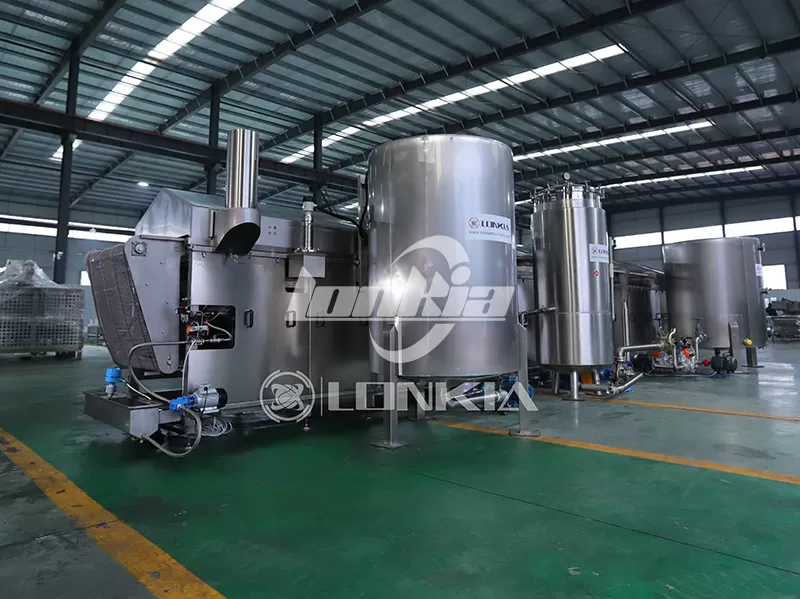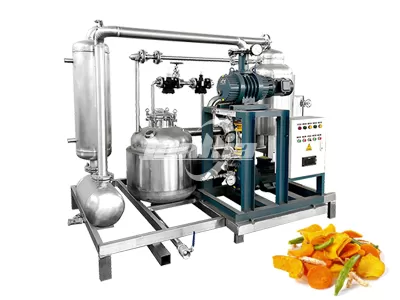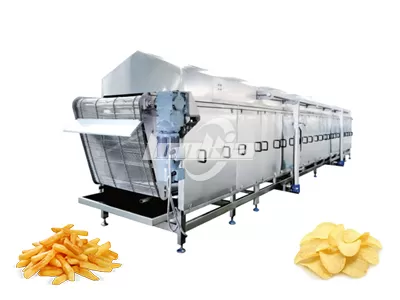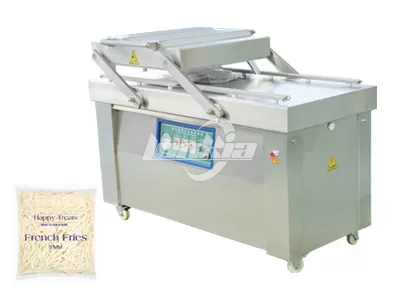When purchasing a French fries frying machine, price is often one of the primary concerns for customers. However, factors influencing price extend beyond the machine's size alone, encompassing structural design, production capacity, functional configuration, and material selection. This article will detail several key factors affecting continuous fryer machine price, helping customers make more informed decisions during selection.
Production Capacity and Efficiency
The production capacity of a French fries frying machine directly determines its price. Different food processing factories have varying production demands. High-capacity machines require larger oil tanks, more powerful heating systems, and more efficient conveyor structures, all of which increase manufacturing costs. Customers should select a capacity that matches their daily output requirements.
Heating Method and Energy Efficiency Design
Common heating methods include electric heating, gas heating, and steam heating. Each method involves distinct equipment structures and energy consumption levels. For instance, gas heating requires additional combustion systems, while steam heating relies on boiler systems, resulting in significant cost variations. When comparing continuous fryer machine prices, customers should consider both their facility's energy availability and long-term operational expenses.

Materials and Sanitation Standards
Food processing equipment demands strict material compliance. Premium French fry making machines are typically constructed from food-grade stainless steel, ensuring corrosion resistance while facilitating easy cleaning and maintenance. Though this material incurs higher upfront costs, it effectively extends machine lifespan and reduces long-term maintenance expenses. When comparing prices, customers should evaluate not only initial purchase costs but also long-term value.
Automation and Intelligent Control Systems
Modern French fries frying machines are typically equipped with PLC control systems featuring automatic temperature regulation, oil circulation filtration, and alarm functions. These configurations significantly enhance operational convenience and product consistency, though they correspondingly increase the price. For customers prioritizing French fries production line automation and product uniformity, investing in such intelligent fryers is worthwhile.
Customization Requirements
Some customers may request specialized modifications based on their production processes, such as adding a secondary frying stage, extending conveyor belts, or installing automatic discharge systems. Custom solutions increase costs beyond the base price but better align with production needs, ultimately improving overall efficiency.
Conclusion
In summary, key factors influencing French fries frying machine pricing include production capacity, heating method, materials, automation systems, and customization requirements. Customers should evaluate options based on actual production needs and budget rather than solely pursuing low prices. As a professional continuous fryer manufacturer, Lonkia offers multiple fryer models and provides tailored solutions to help customers achieve stable, efficient production while making sound investments.



